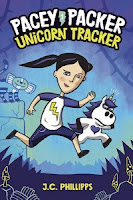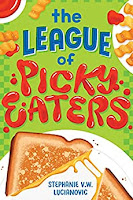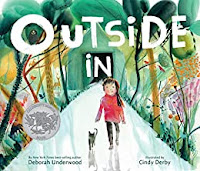 |
Where I lived for 5 days.
|
Well, I lost an entire week of my life to an illness that wasn't Covid. I was out of commission for four days, though, and the following two days were up and down. I imagine I'll be napping this afternoon, too. I was sick enough that I even had to give up tweeting
virtual author appearances, because I tagged a random guy with the same name as an author involved. I was able to read, but I kept moving back and forth between books. Not a lot of concentration.
Though maybe I do that, anyway.
I did, however, finish some interesting things.
The Best American Essays 2012 I've had this thing on my Kindle for, I don't know, seven or eight years? Whenever it became available as a deal. I'd read a few of the essays, but it wasn't something I looked forward to getting back to, obviously.
Recently, I've been reading essays on
Medium, where I've wondered if essays aren't just a bit different. I find them longer than I'd prefer. Rambling. Not staying on subject. Sometimes more personally focused than I'm interested in reading.
The essays in 2012 were also longer than I'm interested in reading. Sometimes authors will write about something, then relate it to books they've read, which should be enlightening, but... There was one essay about boredom that put me to sleep at least twice one morning on a particularly sick day. I woke up in the night, couldn't get back to sleep, thought, I'll try some more of that boredom essay. Knocked me right out. It was great.
Another essay was of interest to me, because it was about the author's friend who was beautiful. Doesn't sound as if the guy was someone you'd want to know, though. The author veered off into discussions of beauty. I didn't love the essay, but it made me think that maybe I'm not all that interested in beauty as a subject. That's significant because there is a character in 143 Canterbury Road whose beauty is remarked upon. I need to think about that.
Two essays I particularly liked: Killing My Body to Save My Mind by Lauren Slater and Outlaw by Jose Antonio Vargas. Both these essays are very personal. But they stay on task, making them on the short side for these kinds of volumes, and they deal with subjects that I am aware of, but haven't read about over and over again.
I walked away from this book--metaphorically, because I wasn't doing much walking last week--with a question--How do you go about choosing subjects for essays? Things like boredom and beauty or things much more from personal experience?
Suffering Succotash: A Picky Eater's Quest to Understand Why We Hate the Foods We Hate by
Stephanie V. W. Lucianovic I started this a couple of months ago, because we have a few truly picky eaters in our family, and it does have a big impact on their lives. My response to this book is interesting, because while with the essays I preferred the ones that were personal, I found this too memoirish for my taste. I was hoping for more help. Maybe there just isn't any.
I'm mentioning this here, because Lucianovic now writes children's books, and next month she has one coming out called The League of Picky Eaters. I don't think I've ever seen this subject in a children's book, though there may be some out there. This one sounds very clever. I've sent a request to NetGalley, though I'm behind on posting about other NetGalley books, so I don't know how this will turn out.
Skunk and Badger by
Amy Timberlake with illustrations by
Jon Klassen. This is an example of social media marketing working. Amy Timberlake ended up in my
September Virtual Opportunities post, because she has a new
Skunk and Badger book out right now,
Egg Marks the Spot. While scrolling through available e-books from my library, I recognized her name on the first
Skunk and Badger book and borrowed it. So the author and her book series got a reader, because of social media marketing, and now it is getting more social media marketing by way of this blog.
Somehow I got the impression Skunk and Badger was going to be like Frog and Toad. I wouldn't make the comparison, myself, because I think it's for a much older age group, and is much more sophisticated. Which is not a bad thing. Not bad at all.
Skunk and Badger are two loners who definitely need each other, though they're not at all alike. The reclusive and studious Badger struggles with coming to grips with the much more outgoing and somewhat chaotic Skunk. They inhabit a world with a village populated by other animals, and they have mail! Also, there are lots of chickens.
A really lovely book.

















